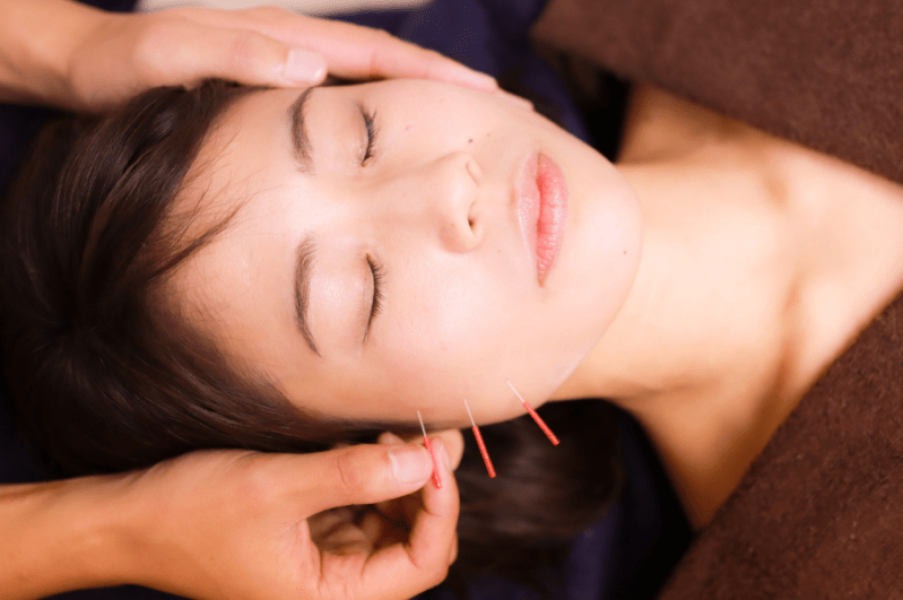Acupuncture is the therapeutic use of tiny single-use needles placed in the skin at specific points called meridians to redirect and balance life energy known in Chinese Traditional Medicine as chi or qi (pronounced CHEE). Those who practice and receive acupuncture believe that it can activate the nervous system, muscles, tissues, and connective tissues. This promotes the natural release of pain-reducing, stress-reducing, and inflammation-reducing chemicals inherent to your health and wellbeing.
It has been practiced for over 2000 years, long before science could explain through neuroscience why or how people experience the results they get from acupuncture. While acupuncture does not purport to treat or heal anything, many experience relief while receiving regular acupuncture treatments.
We provide this alternative therapeutic service because we believe it works for many. Clients repeatedly tell us that it works for them, and we value the personal experiences of others. That leads us to acupuncture for TMJ.
Acupuncture for TMJ
Your TMJ is a hinge-like joint in the jaw that controls how you open and close your mouth to chew, speak, yawn, etc. A disorder of TMJ is commonly called TMJ or TMD.
When the connective tissues that manage the joint become inflamed, symptoms of TMJ can occur:
- Tender jaw
- Headaches
- Earaches
- Tinnitus (ringing of the ears)
- Pain in the face
- Neck and shoulder pain
- Jaw locking, popping or grating
- Trouble chewing
- Pain on one side of the jaw
Your TMJ disorder may be minor to severe. It could also be fleeting and occasional, or chronic.
TMJ disorders are caused by:
- Trauma (mental, emotional, and/or physical) – For example, remembering emotionally traumatic or stressful events can cause the face to tense uncontrollably, making TMJ worse.
- Teeth clenching or grinding – This is typically caused by trauma and prolonged stress.
- Improper chewing motions- This may occur if you have a painful tooth you favour or due to the natural structure of your teeth and jaw.
- Arthritis – Most of us will develop this inflammation in various joints as we age.
- Jawbone loss – This may be due to disease, certain drugs, or losing several teeth.
- Wear and tear – Excessive chewing of ice, hard candy, taffy-like foods could cause wear and tear.
Acupuncture may help you with TMJ symptoms because it encourages your body to produce hormones and neurotransmitters that alleviate mental and physical tension.
A meta-analysis of placebo-controlled studies that included over 200 people (a small study population size) found that participants who received correctly-performed acupuncture reported a significant reduction in TMJ symptoms. “Correctly performed” means that needles were placed at the facial acupoints associated with relief.
That’s right. They compared acupuncture to randomly-placed needles, and participants noted the difference.
Acupoints for Facial Pain
Acupuncturists place the fine needles at precise points. Acupoints associated with facial pain and the causes of that pain are as follows:
On the front:
- Yintang -anxiety reduction, sleep improvement
- GV26 – mind-calming, focus restoring
On the side:
- Taiyang – one-sided headaches
- SJ21 – tinnitus, toothaches, earaches
- SJ17 – facial paralysis, lockjaw, toothache
Additionally, LI4, an acupoint located on the meaty bulge between the thumb and index finger, can relieve headache pain. Unlike some of these others, this point is one you can easily find and try at home without the needle. Next time you have a headache, squeeze, hold, release, and repeat this point to see for yourself how these points can relieve some of the pain.
Other Therapies and Treatments for TMD
Acupuncture is an integrative health approach that you may choose to combine with medical and therapeutic treatments for TMD. The degree to which these work for your individual situation depends on the cause and severity of your TMD but may include:
- Meditation
- Massage Therapy
- Therapeutic Yoga
- Traditional Chinese Medicine Herbs
- Mental health / emotional health counselling
- Stress management techniques
- Lifestyle changes
- Mouthguards and splints
- Muscle relaxants
- Tricyclic antidepressants – A specific type of antidepressant that also helps with bruxism (teeth grinding/clenching), facial pain, and daytime tiredness
- Antiinflammatory meds
- Antianxiety meds
- Injections, such as Botox or corticosteroids
- TMJ surgery
- Arthrocentesis – a medical procedure that involves the releasing of fluid and inflammatory compounds from the joint via minimally-invasive needles (not the same as acupuncture)
Contact us at Fermata Integrated Health in Kelowna, B.C., to discuss if acupuncture might be right for you.

